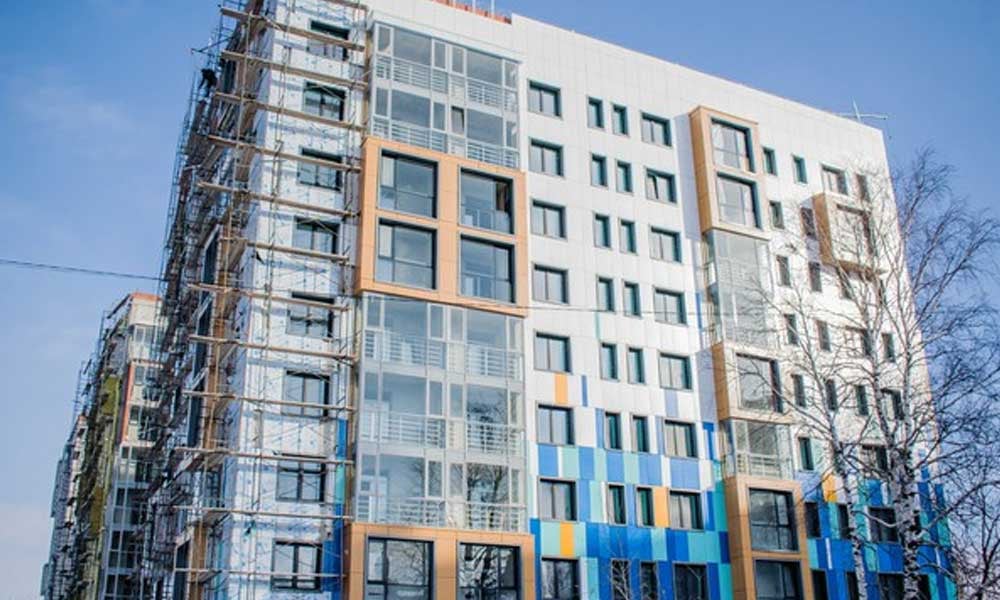Government tightens screws on irresponsible developers and product manufacturers.

Developers and manufacturers who refuse to help fix cladding issues could be blocked from the housing market, the government has said.
The move comes after years of legal wrangling over the issue of building safety following the 2017 Grenfell Tower fire in London, which resulted in the deaths of 72 people.
The proposed measures, part of the amendments to the Building Safety Bill presently making its way through parliament, were unveiled on Monday by the secretary of state for levelling up, Michael Gove.
The measures are aimed at forcing the industry to pay to remove unsafe cladding and protect leaseholders from exorbitant costs, which has seen some leaseholders footing bills as high as £100,000.
Cladding companies could also be sued and subject to fines for defective products. Significantly, the proposals say that leaseholders would have up to 30 years to sue builders and product manufacturers for defects, extending the current period to bring legal action against offending firms and individuals by 24 years.
The Government said it will guarantee that “no leaseholder living in medium or high-rise buildings will have to pay a penny for the removal of cladding”.
If approved, developers that still own a building they built or refurbished that was more than 11 metres high (roughly about four to six storeys high) “will be required to pay in full to fix historic building safety issues in their property”. The rules will also apply to landlords linked to an original developer.
Offending developers could also have planning permits blocked along with building control sign-off on developments, “effectively preventing them from building and selling new homes”.
Until now, a manufacturer could be found guilty of misconduct but not be charged to fix the problems they caused in selling defective products.
Courts will also be given new powers to stop developers using “shadowy shell companies”, which are notoriously difficult to trace and whose owners are hard to identify.
Gove pointedly added that “all industry must play a part, instead of continuing to profit whilst hardworking families struggle”.
In January, he told the House that the Government would “take action to end the scandal and protect leaseholders” and scrap the proposal for loans and long-term debt for medium rise lease holders.
He said: “No lease holder living in a building above 11 metres will ever face any costs for fixing dangerous cladding. And working with members of both houses, we will pursue statutory protection for lease holders and nothing will be off the table.”
Commenting on the Building Safety Bill, Charlie Blagbrough, policy manager at the Building Societies Association, told Mortgage Introducer the BSA welcomed the Government commitment to ensure that leaseholders would not have to pay for remediation work.
However, he added: “There remain a number of questions to be addressed, such as the inclusion of buy to let landlords; shared ownership properties and homes below 11 metres in height.
“But lenders are having constructive dialogue with the secretary of state and officials from the Department for Levelling Up, Housing and Communities. In the meantime, lenders will continue to take a proportionate approach to the use of the EWS1, evidenced by data showing that 92% of flat purchases required no such intervention."
The EWS1 or External Wall System 1 form, is signed off by a qualified inspector and is required by lenders before they can provide a mortgage on a flat for residential buildings above 18 metres in height.
Andrew Parker, a partner at the Forsters law firm which represents both developers and some leaseholders, told the BBC that making buildings safe was “not going to be straightforward”.
He noted that the developers his firm represents “were on board with making their buildings safe” but was critical of the government for failing to mention contractors, engineers and designers who he said were “equally culpable".
Mortgage Introducer has reached out to Arconic (formerly Alcoa), the company that made the cladding panels used in the Grenfell Tower, for comment.
Arconic has so far denied responsibility for the tragedy, arguing that its cladding panels were used incorrectly as they are not suitable for cladding facades.



